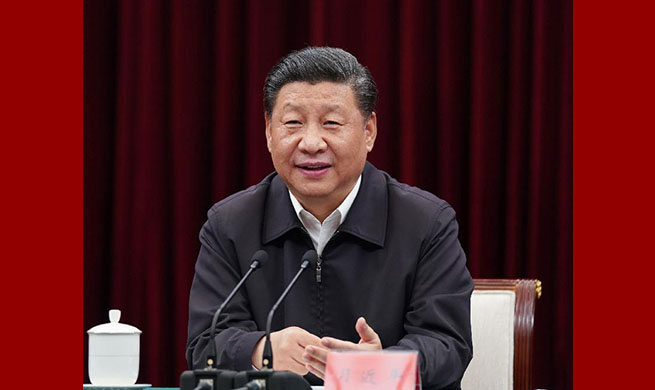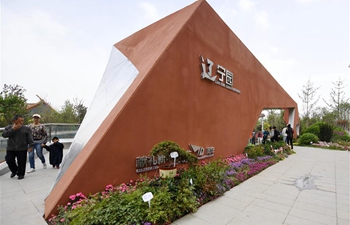by Eric J. Lyman
ROME, May 22 (Xinhua) -- Nationalist and populist political parties are poised to make major gains in elections for European Parliament later this month. But analysts said that probably won't lead to the wholesale changes some are expecting.
Italy already has a government based on nationalist and populist elements. The government of Italian Prime Minister Giuseppe Conte is supported by the populist, anti-establishment Five-Star Movement and the nationalist, anti-migrant League.
Ahead of what will be the greatest Europe-wide test of strength yet for the tide of non-traditional political parties, polls predict significant gains, not only in Italy but also in Denmark, France, Germany, Hungary, Poland, and elsewhere.
All told, some 425 million people in 28 countries are eligible to vote for 751 parliamentary seats, with voting running from Thursday to Sunday.
Few predict the bloc of populists and nationalists to gain an outright majority in the legislature, but even an overall gain of 6 to 12 percent predicted by polls will be enough for them to claim a symbolic victory and to rob other voting blocs from achieving a majority when it comes to setting European policy on things like trade deals and budgetary matters.
In Italy, gains are expected to be more dramatic than in Europe as a whole. Five years ago, the Five-Star Movement and the League combined to earn 23 of Italy's 71 seats in the European Parliament. Now, polls predict the parties will combine for between 35 and 39 of Italy's 76 seats.
Trouble is, the two parties have proven to be uneasy partners in Italy, championing contradictory priorities and with little overlap in their support bases.
According to Antonio Villafranca, research coordinator and head of the European Program at ISPI, the Italian Institute for International Political Studies, a think tank, the same thing is likely to happen on a European level.
"These groups are far from being a cohesive voting bloc," Villafranca told Xinhua. "There will be internal battles among the different parties in the bloc, and in many cases they will have to deal with opposition from their national governments, many of which were elected before the increase in popularity for these movements."
Luigi Curini, a political scientist with the Milan State University, agreed, predicting the populist-nationalist elements will grow but remain the third largest voting bloc in the European Parliament, smaller than the traditional center-right and socialist blocs.
"They will have a louder voice, but I don't think we will see the big changes that the traditional powers fear," Curini said in an interview. "I think some may be over-estimating the impact of this vote."
Analysts said that some of the areas that could see some change is in the area of trade, which could see a move away from pure free trade, with the populist and nationalist legislators pushing for more trade barriers aimed at protecting domestic industries.
The same lawmakers could push for more flexibility on national budgets, which would be good news for Italy, which had a long standoff with European officials regarding its 2019 deficit. Many expect a similar fight later this year when the country releases its draft for the government's 2020 budget.
The populist and nationalist parties could also follow Italy's controversial lead in establishing restrictive European Union policies on migration.













